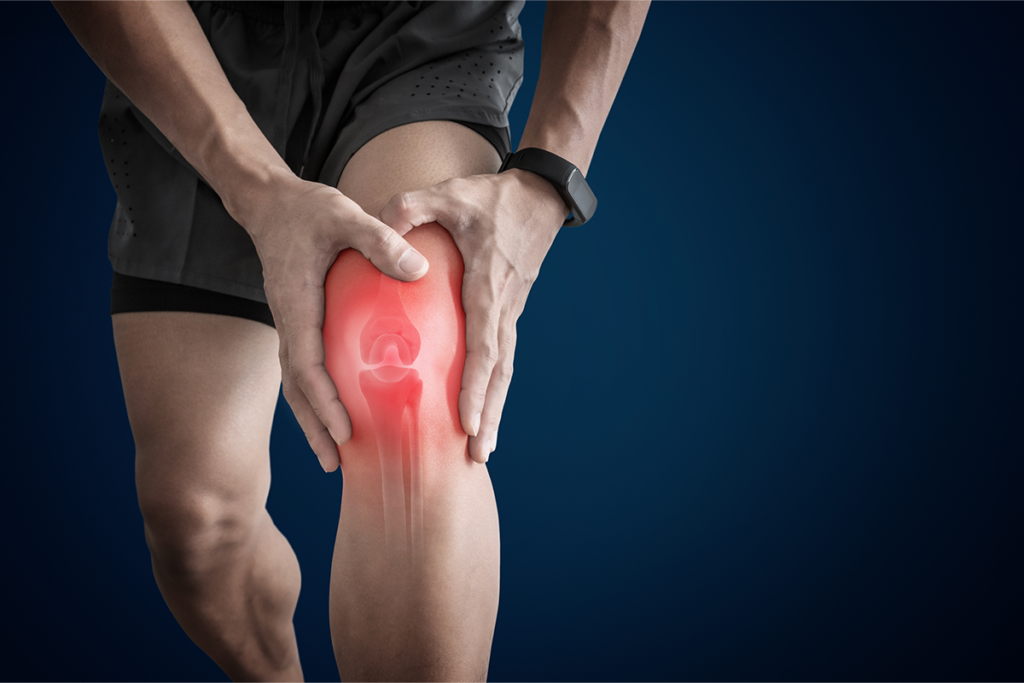Joint pain is a common concern, especially with age or inflammatory conditions like arthritis. Many supplements are available that aim to alleviate this discomfort. Here’s an in-depth look at the most effective supplements and how they support joint health.
1. Glucosamine and Chondroitin
Glucosamine and chondroitin are two of the most widely used supplements for joint health. Found naturally in cartilage, they support joint structure and function, potentially reducing pain and inflammation. Glucosamine sulfate, in particular, has shown benefits for joint pain, as it helps maintain the cartilage that cushions the joints.
How They Work:
• Glucosamine aids in building cartilage and maintaining joint lubrication. It is believed to delay cartilage degeneration.
• Chondroitin may help retain water in the cartilage, making it more resilient. It also has anti-inflammatory properties.
Effectiveness:
• Research shows mixed results, but many people with osteoarthritis report improved pain levels with glucosamine and chondroitin supplementation.
2. Omega-3 Fatty Acids
Omega-3 fatty acids, commonly found in fish oil, are known for their anti-inflammatory properties, making them valuable for joint pain relief. These essential fats decrease inflammation in the body and can ease stiffness and tenderness associated with conditions like rheumatoid arthritis.
How They Work:
• Omega-3s inhibit inflammatory enzymes and cytokines, helping to reduce joint inflammation.
Effectiveness:
• Studies suggest that omega-3 supplementation can significantly reduce joint pain and stiffness in people with inflammatory arthritis, potentially reducing the need for NSAIDs.
3. Curcumin
Curcumin, the active compound in turmeric, has potent anti-inflammatory and antioxidant effects, making it popular in natural remedies for joint pain. Its effects on inflammation pathways make it especially beneficial for inflammatory joint conditions.
How It Works:
• Curcumin blocks NF-kB, a molecule that moves into cells and turns on inflammation genes. It also inhibits cytokines, which are inflammatory proteins.
Effectiveness:
• Research indicates that curcumin can be as effective as some anti-inflammatory medications in reducing joint pain, particularly for those with osteoarthritis.
4. Boswellia Serrata (Indian Frankincense)
Boswellia is an herbal extract that has been used in traditional medicine for centuries. Its anti-inflammatory effects make it effective in reducing joint pain and improving joint function.
How It Works:
• Boswellia blocks the activity of a particular enzyme, 5-lipoxygenase, which plays a key role in inflammation. This reduces the inflammatory process associated with joint pain.
Effectiveness:
• Studies show that Boswellia extracts can significantly reduce pain and improve joint function in individuals with osteoarthritis and rheumatoid arthritis.
5. Collagen
Collagen is an essential protein that makes up connective tissues in joints. Collagen supplements, especially hydrolyzed collagen, have gained popularity as they may support cartilage repair and alleviate joint pain.
How It Works:
• Collagen provides the building blocks for cartilage, potentially slowing the degeneration of joint tissue and promoting tissue repair.
Effectiveness:
• Research indicates that collagen supplements may reduce joint pain in athletes and those with degenerative joint diseases.

6. MSM (Methylsulfonylmethane)
MSM is a sulfur-containing compound with anti-inflammatory effects, often used in combination with glucosamine and chondroitin to manage joint pain. Sulfur is vital for joint tissue, and MSM supplementation can help reduce inflammation.
How It Works:
• MSM helps reduce inflammation by inhibiting inflammatory cytokines and proteins.
Effectiveness:
• Some studies show MSM can reduce pain, swelling, and stiffness in individuals with osteoarthritis, improving their quality of life.
7. Vitamin D
Vitamin D plays a critical role in bone health, and deficiencies are linked to an increased risk of joint pain. Low vitamin D levels can exacerbate joint pain, particularly in those with conditions like arthritis.
How It Works:
• Vitamin D supports calcium absorption, maintaining bone density and reducing joint pain associated with bone-related issues.
Effectiveness:
• For those deficient in vitamin D, supplementation has shown positive effects on joint pain and bone health.
8. SAM-e (S-adenosylmethionine)
SAM-e is a compound that naturally occurs in the body and is known for its pain-relieving properties. It is particularly useful for osteoarthritis-related pain.
How It Works:
• SAM-e supports cartilage repair, possesses anti-inflammatory properties, and enhances the effect of certain neurotransmitters involved in pain signaling.
Effectiveness:
• Studies suggest that SAM-e can be as effective as NSAIDs in reducing pain and improving joint function in people with osteoarthritis.
9. Vitamin C
Vitamin C is a powerful antioxidant necessary for collagen synthesis, which supports joint health and repair. Adequate vitamin C intake helps reduce inflammation and the risk of degenerative joint conditions.
How It Works:
• Vitamin C aids in collagen production, which is essential for joint health, and acts as an antioxidant, reducing oxidative stress and inflammation.
Effectiveness:
• Research indicates that adequate vitamin C intake may reduce the risk of developing osteoarthritis and alleviate symptoms in those with inflammatory joint conditions.
10. Ginger
Ginger is another natural anti-inflammatory that has been used in traditional medicine to treat joint pain. Its active compounds, gingerols and shogaols, possess potent anti-inflammatory and pain-relieving properties.
How It Works:
• Ginger reduces inflammation by blocking COX-2, an enzyme responsible for pain and inflammation, similar to NSAIDs.
Effectiveness:
• Studies have shown that ginger can be particularly effective for osteoarthritis pain relief and improved joint function.
Practical Tips for Choosing Supplements
When choosing supplements, keep the following in mind:
1. Consult a Healthcare Provider: Always consult a healthcare professional, especially if you have preexisting conditions or are taking other medications.
2. Dosage: Follow the recommended dosage, as too much of certain supplements can have adverse effects.
3. Quality: Look for high-quality, third-party-tested brands to ensure product purity and effectiveness.
4. Combination Supplements: Some supplements are more effective in combination, such as glucosamine with chondroitin or MSM.
Conclusion
Supplements can be an effective part of managing joint pain and supporting joint health. However, they work best when combined with a balanced lifestyle, regular exercise, and a nutrient-rich diet. While supplements like glucosamine, chondroitin, and omega-3s have significant research backing, it’s essential to remember that results may vary, and a holistic approach to joint health is often the most effective strategy.











































